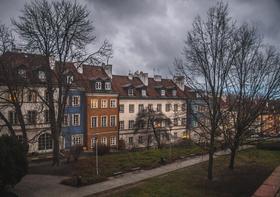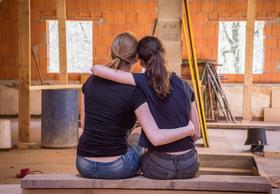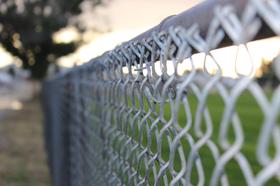For the 2025-26 school year, there are 5 public elementary schools serving 1,282 students in New Ulm, MN.
The top ranked public elementary schools in New Ulm, MN are New Ulm Middle School, R.i.s.e. Program and Jefferson Elementary School. Overall testing rank is based on a school's combined math and reading proficiency test score ranking.
New Ulm, MN public elementary schools have an average math proficiency score of 55% (versus the Minnesota public elementary school average of 47%), and reading proficiency score of 48% (versus the 51% statewide average). Elementary schools in New Ulm have an average ranking of 6/10, which is in the top 50% of Minnesota public elementary schools.
Minority enrollment is 11% of the student body (majority Hispanic), which is less than the Minnesota public elementary school average of 40% (majority Black and Hispanic).
Best Public Elementary Schools in New Ulm, MN (2025-26)
School
(Math and Reading Proficiency)
(Math and Reading Proficiency)
Location
Quick Facts
Rank: #11.
New Ulm Middle School
(Math: 56% | Reading: 53%)
Rank:
Rank:
8/
Top 30%10
414 S Payne St
New Ulm, MN 56073
(507) 233-6100
New Ulm, MN 56073
(507) 233-6100
Gr: 5-8 | 609 students Student-teacher ratio: 16:1 Minority enrollment: 9%
Rank: #22.
R.i.s.e. Program
Special Education School
(Math: <50% | Reading: <50% )
Rank:
Rank:
6/
Top 50%10
1315 South Broadway
New Ulm, MN 56073
(507) 359-8700
New Ulm, MN 56073
(507) 359-8700
Gr: K-12 | 11 students Student-teacher ratio: 6:1 Minority enrollment: 36%
Rank: #33.
Jefferson Elementary School
(Math: 54% | Reading: 38%)
Rank:
Rank:
5/
Bottom 50%10
318 S Payne St
New Ulm, MN 56073
(507) 233-3500
New Ulm, MN 56073
(507) 233-3500
Gr: 1-4 | 624 students Student-teacher ratio: 13:1 Minority enrollment: 14%
Rank: #44.
Imprints Program
Special Education School
(Math: ≤20% | Reading: ≤20%)
Rank:
Rank:
1/
Bottom 50%10
1315 S Broadway
New Ulm, MN 56073
(507) 359-8780
New Ulm, MN 56073
(507) 359-8780
Gr: K-12 | 25 students Student-teacher ratio: 4:1 Minority enrollment: 12%
Rank: n/an/a
Raptor Program
Special Education School
1315 South Broadway
New Ulm, MN 56073
(507) 359-8700
New Ulm, MN 56073
(507) 359-8700
Gr: 2-12 | 13 students Student-teacher ratio: 7:1 Minority enrollment: 15%
New Ulm, Minnesota 51³Ô¹ÏÍøºÚÁÏ (Closed)
School
Location
Quick Facts
Connect And Soar Program (Closed 2023)
Special Education School
313 E 11th Street
New Ulm, MN 56073
(507) 359-8780
New Ulm, MN 56073
(507) 359-8780
Gr: K-5
Mn River Valley Juvenile Detention (Closed 2009)
Alternative School
510 North Front St
New Ulm, MN 56073
(507) 359-8480
New Ulm, MN 56073
(507) 359-8480
Gr: 1-12
15 N State Street
New Ulm, MN 56073
(507) 359-8480
New Ulm, MN 56073
(507) 359-8480
Gr: 7-9 | 334 students Student-teacher ratio: 17:1 Minority enrollment: 4%
Raptor Program (Closed 2021)
Special Education School
1315 South Broadway
New Ulm, MN 56073
(507) 359-8700
New Ulm, MN 56073
(507) 359-8700
River Bend Alc Targeted Svcs. (Closed 2009)
Alternative School
210 20th Street S
New Ulm, MN 56073
(507) 359-8780
New Ulm, MN 56073
(507) 359-8780
South Fork Program (Closed 2023)
Special Education School
C/o St. James Public School, 5
New Ulm, MN 56073
(507) 359-8780
New Ulm, MN 56073
(507) 359-8780
Gr: K-5
Team Program (Closed 2015)
Special Education School
1315 S Broadway
New Ulm, MN 56073
(507) 359-8760
New Ulm, MN 56073
(507) 359-8760
Gr: K-12 | 17 students Student-teacher ratio: 6:1 Minority enrollment: 6%
Frequently Asked Questions
What are the top ranked public elementary schools in New Ulm, MN?
The top ranked public elementary schools in New Ulm, MN include New Ulm Middle School, R.i.s.e. Program and Jefferson Elementary School.
How many public elementary schools are located in New Ulm?
5 public elementary schools are located in New Ulm.
What is the racial composition of students in New Ulm?
New Ulm public elementary schools minority enrollment is 11% of the student body (majority Hispanic), which is less than the Minnesota public elementary schools average of 40% (majority Black and Hispanic).
Recent Articles

School Choice vs. Neighborhood Schools: Key Factors
Explore school choice vs. neighborhood schools in 2025. Learn key factors parents should weigh when deciding the best fit for their child.

Best School Match 2025: Public vs Charter vs Magnet
Compare 2025 public, charter, and magnet school options with updated data, trends, and strategies to find the best fit.

Public School Boundaries and Equity in 2025
Explore how public school boundaries shape access, equity, and opportunity for students in 2025. Learn the impact on families and education policy.
